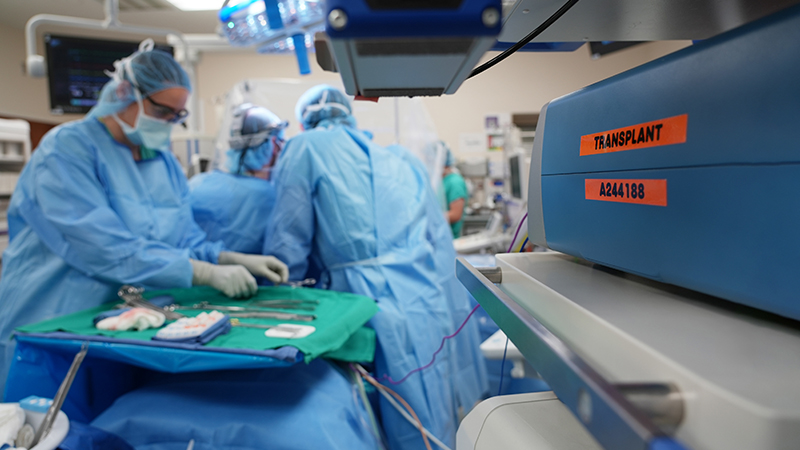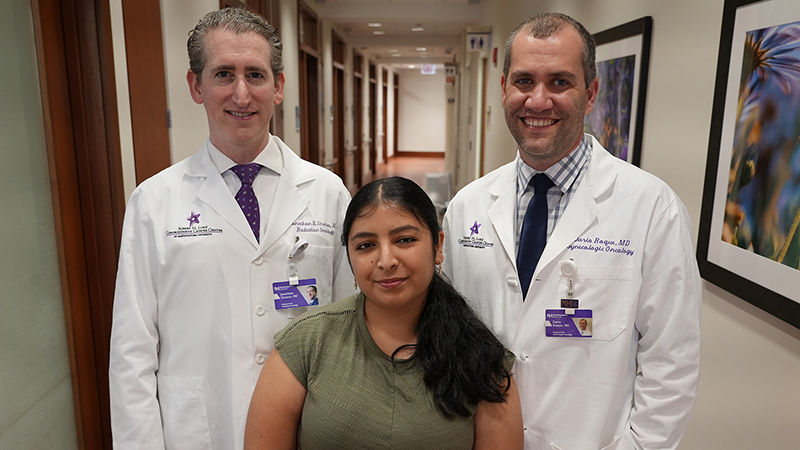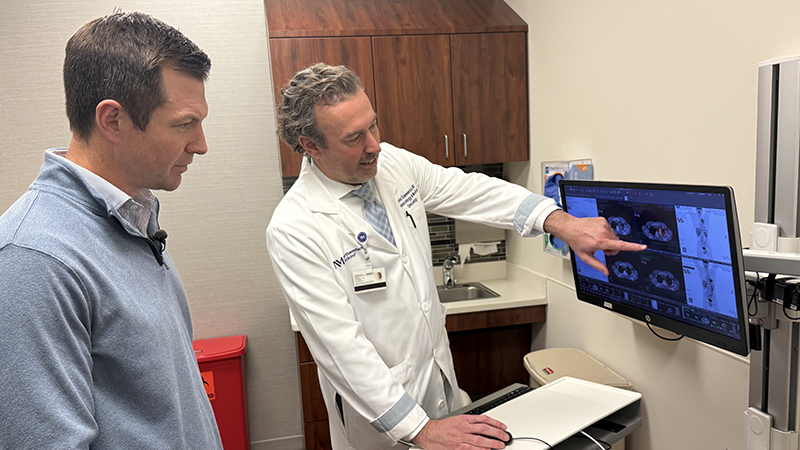Proton Therapy Treats Cancer With More Precision
A Retired Insurance Executive Weighs His Options After Prostate Cancer Diagnosis
Published October 2022
To get ready for his upcoming hip replacement surgery, Michael Bemi of Addison, Illinois, needed to have a few tests completed.
He made an appointment with Kenneth C. Ha, DO, a primary care physician at Northwestern Medicine. During the visit, Dr. Ha ordered the necessary tests and performed a physical. He noticed no record of a prostate-specific antigen (PSA) test in Michael's chart and strongly suggested he get one done. Michael, who was 70 at the time, remembered his last test was taken five years prior, and decided to follow his doctor's advice.
The test came back with an elevated level of PSA in his blood. Dr. Ha didn't think that the result required immediate action, but insisted Michael have another test done within six months. Michael went ahead with surgery to get his hip replaced and then went in for a second PSA test. The second test showed a significant increase in Michael's PSA level. A subsequent biopsy by a urologist confirmed Michael had prostate cancer.
Pursuing Care
"The urologist gave me a great deal of information about available treatment options, including proton therapy, and told me that I needed to undertake some form of treatment within six months," says Michael. "I selected proton treatment because it produced the lowest incidence of negative side effects with one of the highest curative rates."
With the clock ticking, Michael made an appointment at the Northwestern Medicine Proton Center, and met with Adil S. Akthar, MD, a radiation oncologist.
After their initial meeting and presenting Michael's scans to Northwestern Medicine's tumor board for collaborative review with fellow oncologists throughout Northwestern Medicine, Dr. Akthar recommended 28 proton radiation sessions to treat Michael's stage 2 prostate cancer.
"Mr. Bemi was very proactive and had done his research prior to our consultation. We ultimately identified proton therapy as the best treatment option for him to maintain his high level of fitness and activity throughout his treatment course," says Dr. Akthar. "Our center was able to utilize unique planning strategies to treat around his recent hip replacement."
During each radiation treatment, Michael says he did not experience any pain. "Once you're all positioned and they turn on the machine, you really don't feel anything," he explains.
While his treatments were uneventful, Michael says the care he received at each appointment was remarkable.
"My impression and feelings regarding the doctors, nurses, radiation therapists and reception team simply could not be more positive and complimentary. Everyone I met and was treated by during my process was very professional, but also very personable, positive, reassuring, caring and supportive," says Michael. "The Northwestern Medicine Proton Center is unquestionably an absolutely incredible place of healing."
Staying Active
Today, Michael goes for six-month checkups with Dr. Akthar and says he is fully enjoying his retirement.
"I've been lucky and have not really had any negative side effects stopping me at all," says Michael.
He and his wife have been able to explore much of Europe with more adventures on the horizon in Egypt and Jordan. Michael says his young grandson is also keeping him on his toes.
"He's pretty unstoppable," says Michael. "And I can handle that, no problem."
Dr. Akthar feels that Michael is pretty unstoppable as well. "He has maintained an excellent quality of life in follow up. It is always rewarding for me to hear how he stays busy with travel and his grandchildren now that treatment is complete."






